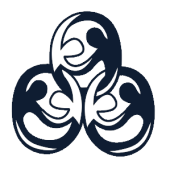My First Experience with Sociocentric Heroism
Inspired by the anti-Vietnam War activism of Dave Dellinger and David Harris, a group of my fellow college students and I started a draft counseling service for young men in Putnam County, southern Indiana, in 1968. We prepared ourselves by learning the essentials of the 1967 Selective Service Act supplied to us by Ann Fagan Ginger of the National Lawyers Guild, based in Berkeley, California.
Armed with some legal knowledge and with the moral support of the American Friends Service Committee, we began operations. Our organizing principle as a group was the shared belief that the war must end and that we had a joint responsibility to stop it by helping young men to refuse service in the armed forces.
A local 19 year old boy soon appeared at our door. He said he had been drafted, believed the war was wrong, and did not want to serve. Although he had received his induction notice much earlier, he had waited until the week of his induction to come to us. We had about 72 hours, so we scrambled to find a provision in the law that allowed him a delay of induction. By the morning of the scheduled induction, we had found the provision we needed and were ready to present our case to the local government draft lawyer at the County Seat. Our biggest obstacle that morning was collecting enough gas money—gas was 25 cents a gallon—to get the 1955 Volkswagen running to make the trip to the County Courthouse.
Once there, we presented our findings to the lawyer and waited. He looked at the law with the eyes of someone who was looking at it for the first time. His brow furrowed and he announced in a grave tone, “According to the provision here, I have no choice but to instruct the Board to stop this boy’s induction immediately.” Both jubilant and weary, we went home to rest before afternoon classes.
This was my first experience with sociocentric heroism—joining with like minded people to act nonviolently in the defense of an ethical principle. The young man whose induction we stopped , was lost in Selective Service paperwork and was never sent to war.
Our success in this case reinforced our belief that collective activism of this kind was not only effective but also exhilarating and life changing. It is this spirit that Phil Zimbardo and I want to imbue by our video project, “Group Dynamics and the New Heroism.” Once people have caught that spirit, they are never the same.
Bill Roller

